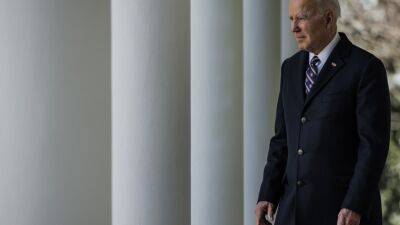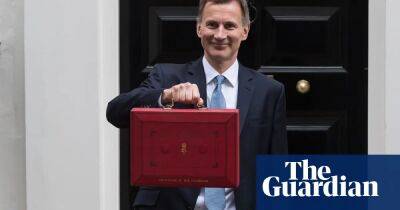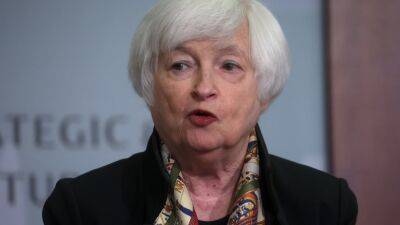Hunt likely to save spending spree for polling day, not budget speech
Jeremy Hunt is under pressure to be generous when he delivers his first budget speech since he became chancellor last October.
The public finances have improved dramatically from the chaotic days that followed Liz Truss’s mini-budget in September, which rocked international money markets and sent interest rates on government debt soaring. The cost of financing Britain’s debt has fallen in recent months and the cost of gas on wholesale markets has tumbled.
As much as £30bn could be available to spend over the next five years and still leave the chancellor within his main fiscal rule, which is to bring down the proportion of debt to annual income – the debt-to-GDP ratio – by 2027. Figures from the Office for National Statistics in January showed that the UK’s total debt last September was £2.22tn and the debt-to-GDP ratio was 100.2%.
Business and consumer groups want a short-term extension of support for energy bills, to cover the period before the fall in wholesale prices starts to feed through. They also want the chancellor to ease planned increases in tax, and especially corporation tax, which they say will limit investment.
Public sector workers have demanded a pay rise above the 3.5% Hunt has budgeted for, and households more generally will want an extension of the energy price guarantee at its current level until July, especially now that it will cost the government less than £3bn.
Hunt is expected to offer some giveaways, including cash for childcare schemes, and a cut in pension tax for the better-off has also been signalled, which pension experts describe as a clumsy effort to prevent GPs and surgeons nearing retirement from quitting the health service.
However, the chancellor’s spending power will depend on fresh
Read more on theguardian.com
![Bitcoin [BTC] breaks free: Will recent spike leave bear market behind - ambcrypto.com](https://finance-news.co/storage/thumbs_400/img/2023/3/22/60973_3vql.jpg)
















